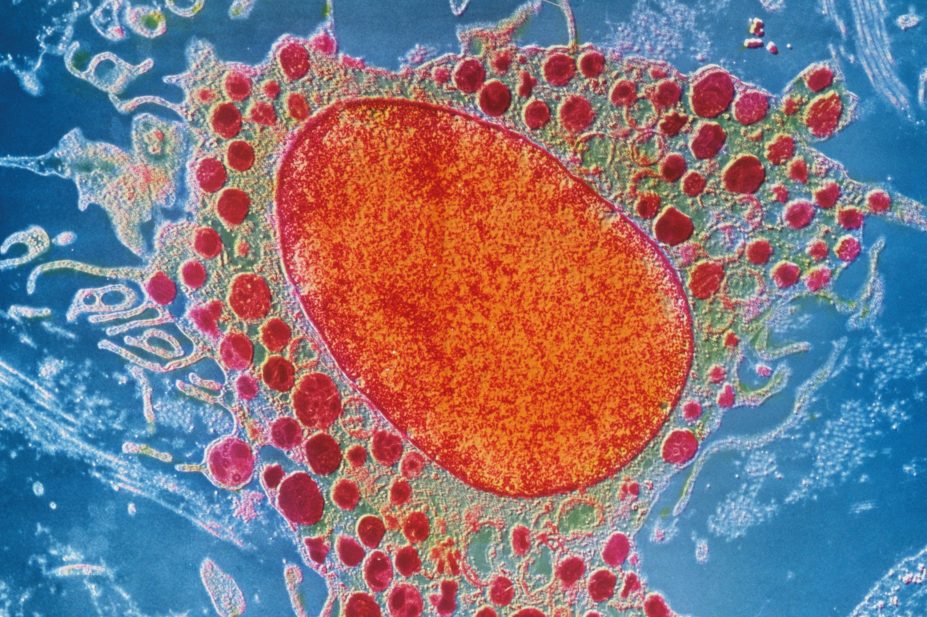
CNRI / Science Photo Library
Mast cells are associated with severe asthma and airway hyperresponsiveness and in some patients they persist in the airway despite high doses of glucocorticoids.
The tyrosine kinase inhibitor, imatinib, used to treat leukaemia, targets a receptor known as KIT that is critical to mast cell function. In a paper published in The New England Journal of Medicine
[1]
(online, 18 May 2017), researchers explored whether the drug might have an effect on mast cells in 62 patients with poorly controlled severe asthma.
At three and six months, the team found that patients randomly assigned to imatinib had a greater reduction from baseline in airway responsiveness compared with those who received placebo. Imatinib treatment was also associated with evidence of reduced mast cell activity.
The researchers say that the findings indicate that strategies to target the KIT receptor and decrease mast cell counts could therefore be an important approach in severe asthma.
References
[1] Cahill K, Katz H, Cui Jet al. KIT inhibition by imatinib in patients with severe refractory asthma. NEJM 2017;376:1911–1920. doi: 10.1056/NEJMoa1613125


